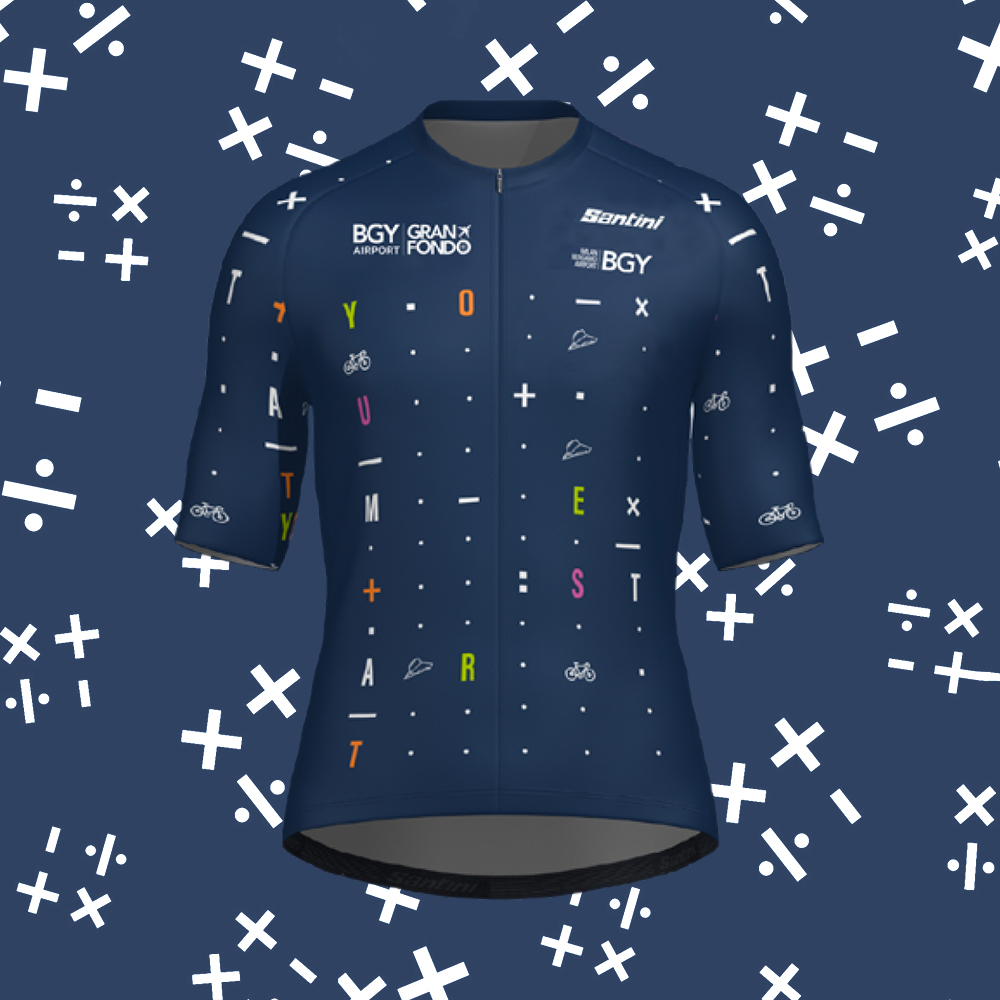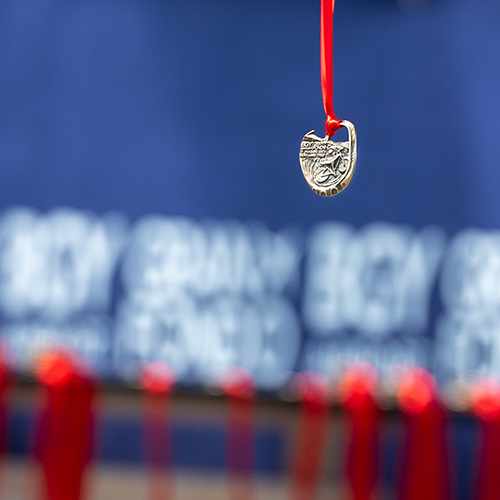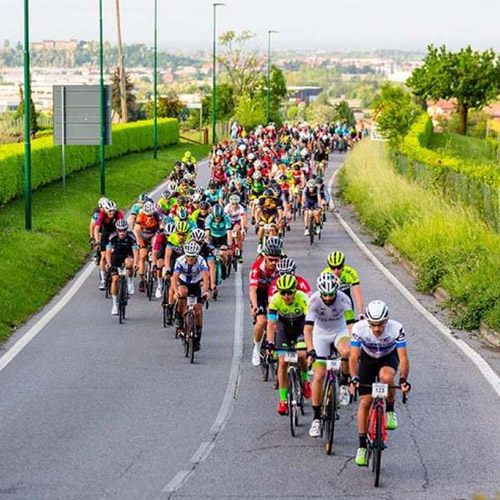The Ecozones
Along the route, 4 refreshment points will be set up exclusively for cyclists wearing all 3 assigned race numbers and the BGY wristband.
The Ecozone will be adopted in these refreshment points in support and for respect of the environment. The ecozone will consist of a waste collection area located near the refreshment point, where water-bottles, bottles, snack packets and waste in general must compulsorily be deposited by competitors; the Ecozone will be marked by signs: Ecozone start – Ecozone stop.
The Organizing Committee, in collaboration with FCI race marshals and organization staff, will monitor the area to prevent participants from throwing waste along the race track and outside the Ecozones. Any participant not respecting the rules of behaviour will be excluded from future editions of the Granfondo.
Eco-sustainable behaviour
- Register online for the 20265 BGY Airport Granfondo; it is quick and easy, and trees will thank you.
- Use your bicycle to reach work or friends as well. You avoid traffic, you don’t pollute and you get some exercise.
- Use the appropriate containers that you find along the race track after each refreshment area in order to dispose of waste (EcoZone).
- Prefer sports beverages and supplements packaged in re-usable bottles (packets).
- Look for sports events which are Emission Free and support organizations with Green programs.
- Observe eco-behaviour at home, too, when you finish training or competitions: Take a shower instead of a bath, save energy, always choose Class A home appliances, never leave anything on stand-by.
- Try to reach the Granfondo departure point by sharing a car with more passengers. Full car, cleaner air…make arrangements with your training mates.
- When you wash, use natural and ecological detergents to protect your skin and also the environment. Ask which ones to choose at the herbalist’s shop and pharmacy.
- When you print the Granfondo program or itinerary to reach it, set your printer in front-rear mode to occupy less space, consume less paper (always use recycled) and therefore waste less trees.
- Wash your race clothing using an ecologic detergent. It carries the Ecolabel quality logo.
- Never quit sport. Not only it’s good for you and helps you to socialize, it is also your contact point with nature and the space that surrounds you. The more aware, the more you can help protect it.
An Eco-sustainable event
Choosing the right suppliers.
Inform athletes, exhibitors and visitors about the sustainable project.
Manage/ reduce waste, in particular regarding:
Food and Beverages
- Avoid small bottles, choose larger containers for water and beverages;
- Equip staff and volunteers with re-usable bottles;
- Rent instead of purchasing materials;
- Use recyclable/ biodegradable materials;
- Choose local and seasonal products;
- Don’t throw anything away, give any left-over food to soup kitchens, etc.;
Water and Electricity
- Define method of collaboration with professional suppliers able to propose efficient solutions;
- Use existing medical centres. If needed, use existing washrooms (schools, gyms) instead of chemical toilets;
- Install water equipment (to reduce pressure and volume, install timer, etc.);
- Use equipment and lamps of low energy consumption;
- Inform staff, volunteers and other partners on the sustainable use of resources.
Transport
- Plan trips in advance to reduce transport, thus improving efficiency;
- Use less polluting vehicles: Low-consumption cars, bicycles, electric vehicles;
- Invite athletes and spectators to use public means, encourage car-pooling and shuttle services.
Waste management
Events that involve thousands of athletes and spectators generate waste: this can be re-used, recycled and reduced.
- Try to collaborate with some local body, expert in handling waste, to find out about their sustainability policy and materials that can be rented;
- Provide for collection points, with a view to recycling;
- Inform staff, volunteers, exhibitors and suppliers about the waste management system;
- Limit the use of products with packaging: Avoid useless packaging, prefer recyclable types, etc.;
- Recover the waste abandoned along the itinerary and at departure/arrival points;
- Implement sanctions for athletes who dispose of waste outside the indicated areas.
Suppliers and Exhibitors
Make sure they join the sustainability project:
- Inform them on the sustainability project and find out how they work before selecting them;
- If possible, choose suppliers of recycled or recyclable products;
- Invite them to respect the sustainability project;
- Ask the exhibitors to print the brochures front and back on recycled paper;
- Ask them to bring to the event only the necessary material and take back home any materials not distributed;
- Suggest the distribution of recycled, recyclable and durable products;
- Reduce the use of new packaging, preferring materials that can be re-used.
Communication on Sustainability
- Refer the sustainability project to the media, through the website and newsletters, to raise awareness before the event and involve as many people as possible;
- Inform and educate all the staff on the project, collaborating with the team leaders who will, in turn, inform others;
- Set up an information point on sustainability for athletes and spectators (it can be part of the info point);
- Involve local associations and inform them on the ‘’Environment’’ and ‘’Health’’ themes.
Office
You can help the environment throughout the year, as well, while preparing the event…
- Minimize the use of paper: Prefer front-back printing, use vegetable inks and recycled paper;
- Increase the use of electronic documents to reduce mailing;
- Reduce trips, prefer telephone calls and video conferences;
- Boost the efficiency of the energy supply. Use sunlight instead of artificial lighting (this also applies to the office set-up at the race headquarters).







